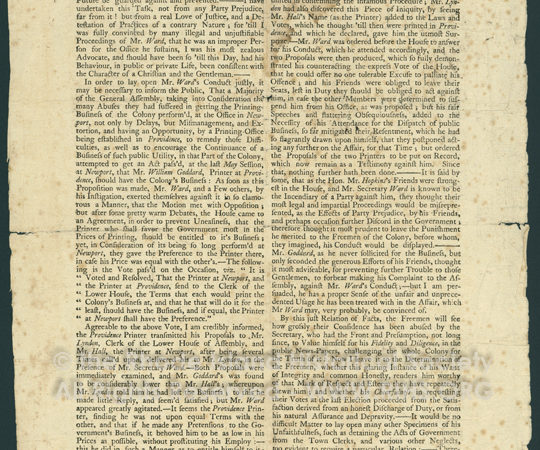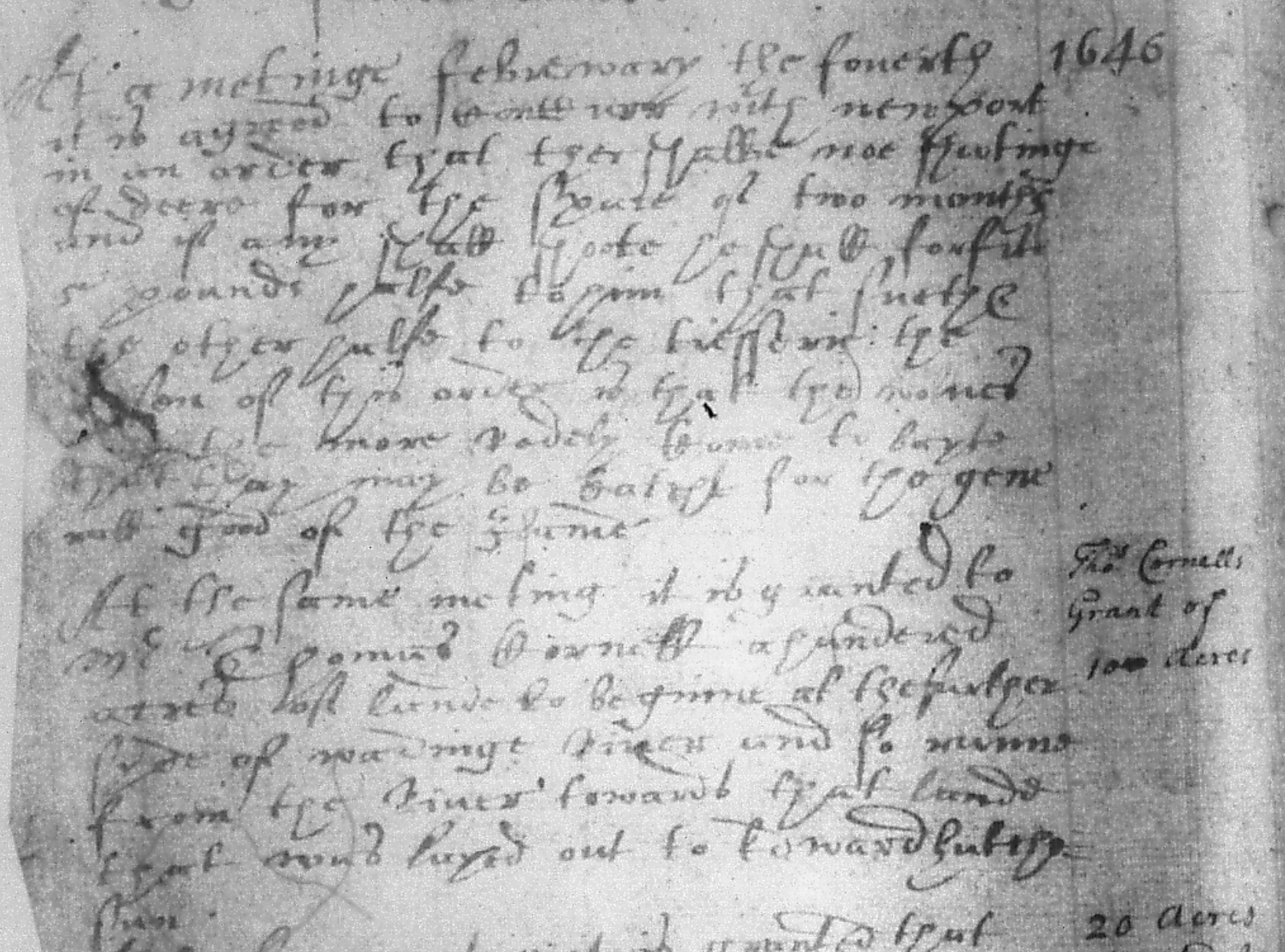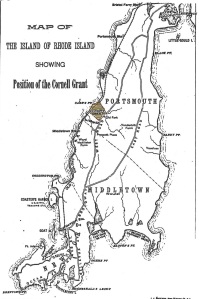
A Family history of murder and intrigue
Everyone knows of the infamous New Englander Lizzie Borden. What people may not know: she wasn’t the first person in her family to be accused of murdering her parents. In fact, nearly two hundred years before, her six-times-great-grandfather, Thomas Cornell, was convicted and put to death for the murder of his mother, Rebecca Cornell. What really makes this incident stand out is that the evidence presented against Thomas was circumstantial and, more disturbingly, spectral.
Rebecca Cornell
Rebecca’s origins are murky at best: there are a few different theories about whether or not she was born Rebecca Briggs. Some believe that John Briggs (her son’s accuser) was her brother by blood; some believe that that he was only related through marriage, and some believe that they were related by both blood and marriage. The only real conclusion is that there is not enough evidence to prove or disprove any theory.
What we do know is that Rebecca married Thomas Cornell (Sr.) in 1623, they had about 15 children and at least 10 survived to adulthood. They emigrated from England around 1638. They had settled permanently in Portsmouth, Rhode Island about 1644, and in 1646 Thomas received his own plot of land of approximately 100 acres.


Thomas Cornell
Thomas Cornell (Jr.) was born about 1627 in England; he came to the New World with his parents when he was about 11. He married twice, he had four sons by his first wife (of unknown origins). By 1668, there’s a record of his second wife, Sarah Earle; with whom he had 3 daughters. In 1673, Thomas, Sarah, and their children were living with Rebecca at the farm stead along with a few hired hands. But life on the farm was not an easy one. According to friends and neighbors, Thomas and Rebecca did not get along well. There was talk about debts that Thomas owed his mother, and cruel treatment between the two.
What happened to Rebecca
On the night of February 8th 1673, while the family sat down to a supper of mackerel, Rebecca stayed up in her room complaining that the fish made sick. After supper, Sarah sent one of the Thomas’s sons to ask if there was anything that Rebecca wanted. Upon entering the room, the boy found Rebecca on fire; she was already dead. Thomas Cornell’s original statement, the statement of one of the farm hands and the first coroner’s inquest, were all taken the following day: February 9th, 1673. The coroner originally ruled that Rebecca’s death had been an accident. It took just days for the opinion about the cause of death to change.

The incriminating “evidence”
The most damning evidence presented was the deposition of John Briggs. John Briggs testified on February 12th, 1673 about Rebecca’s ghost visiting him in the night to tell him, “I am your sister Cornell, and Twice sayd, see how I was Burnt with Fire,” (Fiske, 1998, 26). This supposedly supported the claim that Rebecca’s death was more than just accident.
![John Brigs of the Towne of Potsmouth Aged sixty foure yeares or thereabouts, being According to Law Sworne and In[g]aged befor the Councell, Testifieth That on the Twelfth Day of this Instant month ffebruary in the night as this Depont lay in his Bedd, he being a A Dreame of Mrs. Rebeca Cornell Deceased, and being betweene Sleepeing and Wakeing, as he though he felt something heave ip the Bedclothes twice, and though some body had beene coming to bed to hime, where upon he Awaked, and turned himselfe about in his Bed, and being Turned, he perceived Light in the Roome, like to the Dawning of ye Day, and plainely saw the shape and Apearance of A Woman standing by his Bed side where at he was much Afrighted, and Cyred out, in the name of God what art thoughm the Aperition Answered I am your sister Cornell, and Twice sayd see how I was Burnt with ffire, and shee plainely Apeered unto hime to be very much burnt about the shoulders, fface, and Head.](https://rihs.files.wordpress.com/2018/05/briggs-testimony.jpg)
The trial
The hearing began at the General Court of Trials at Newport on May 12th, 1673; Thomas pled not guilty. But once testimony after testimony was presented talking about the strife between Thomas and his mother, it didn’t take long for the jury to present a guilty verdict. He was among one of two men on trial for murder during the May trials of 1673. Both men were found guilty and both sentenced to hanging. Thomas’s death may be the first capital punishment recorded in the state.
Life after the verdict
Thomas’s execution is widely believed to be May 23, 1673. Shortly after this date, Sarah Cornell gave birth to their last daughter together. She named the baby Innocent. Many believe that this was meant as a form of protest against the guilty verdict. Innocent was the daughter who married into the Borden family, and it is her great-great-great-great granddaughter who was accused and acquitted of murdering her father and stepmother.
While the original house where Rebecca Cornell died “strangely” burned down in 1889, the house was rebuilt six years later using plans of the original farm house. That reconstruction is still standing, and now operates as the Valley Inn Restaurant.
~Rebecca Valentine, Public Services and Collections Assistant
